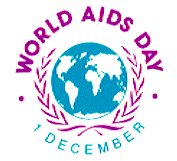|
Political Problems - Delivering Health Services
The fact that cheaper AIDS drugs have now become available in many poor countries does not, in itself, solve their problems. In some of these countries, the health care systems have broken down, and it is therefore difficult to deliver the drugs to all those who need them. Often, foreign-imposed austerity measures have led to cutbacks in the health sector. In some areas, doctors and nurses have simply left, and other areas never had enough health personnel to begin with.
In many developing countries up to 90% of the infected do not know their HIV status and thus do not know that they are infectious to others. Only a few have access to testing and counseling. Even if they knew their status, they would not necessarily have sufficient access to condoms which all too often remain scarce. Under these circumstances, countries with inadequate health care services must give priority to improving and expanding them.
In view of all this, a promising strategy against AIDS has recently been proposed by The Global HIV Prevention Working Group, a panel of public health experts convened by two American foundations. Their report recommends a combination of prevention and treatment programs. This means, in practice, the widespread promotion of condom use, voluntary HIV counseling and testing, and the administration of drugs to prevent HIV transmission from mother to child. Additional campaigns for behavior change could make an additional difference with certain people at risk: Promoting abstinence and/or exclusive sexual relationships, providing clean needles to intravenous drug users, etc. In other words, prevention and treatment stategies can and should work hand in hand: Testing, counseling and treatment can bring millions of people into health care settings where caregivers then can reinforce their prevention messages.
The dangers posed by the AIDS pandemic are great and keep growing. Therefore, since 1988, the World Health Organization (WHO), with the support of the United Nations, has been promoting a “World AIDS Day” which is being observed on December 1 of each year. It reminds the world of its obligation to fight the disease on all fronts, and to care for all of its victims.
 |
|